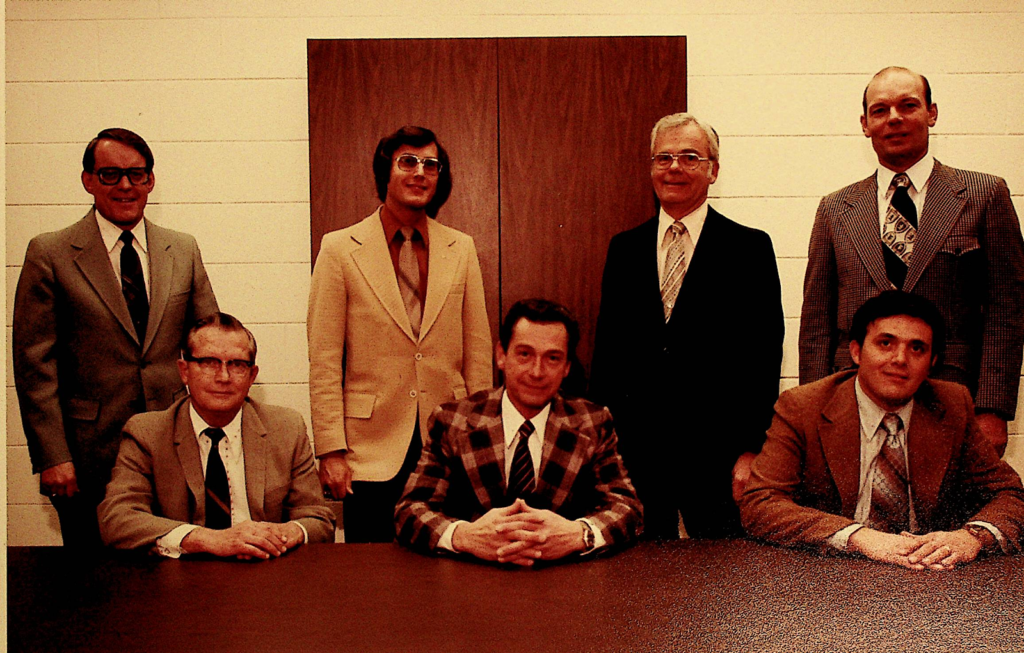Listen to this article
Originally the North Campus of the Denver Community College system, which was created in 1967 by an act of the Colorado State Legislature, Front Range Community College (FRCC) held classes in a variety of temporary structures – known as Tin City, until construction was completed on the permanent campus location in Westminster in 1977. In addition to the new campus being a huge improvement in terms of capacity and amenities, the building boasted solar-powered heating and cooling systems. Upon completion, it was the nation’s largest solar heated building, earned a mention from President Jimmy Carter in his remarks at the Solar Energy Research Institute in 1978, and was the subject of local and national news. The newly launched Front Range Community College Digital Archive chronicles the construction of the state-of-the-art campus.
Created in partnership with the Colorado State Library’s CVL Collections program, the Front Range Community College Digital Archive currently features before and after pictures of the campus site, depicts in-process construction and solar panel installation, and introduces the important people that made the campus what it is today. FRCC’s collection has now been shared with the Plains to Peaks Collective, and its items are discoverable through the Digital Public Library of America, a national platform for digitized historic collections. Jesse Elston, Reference Librarian at FRCC, commented on his experience working on the Digital Archive:
“Theophrastus said ‘Time is the most valuable thing a man can spend.’ Working with the CVL-Collections programs has been a great joy! It’s an awesome platform to display our history. Working with this project took a little time but it is worth it. Especially for me and this being my first digital project.”
The Collections

With five collections containing over three dozen images, as well as a handful of documents, FRCC’s Digital Archive offers a uniquely candid and human look at a subject—a large construction project—that doesn’t typically lend itself to nostalgia. Take for instance the Construction Site Evaluation collection, which depicts administrators and community leaders evaluating the land before construction started. In addition to the wide-open and relatively empty landscapes that will drop the jaw of any current Front Range resident, the fashions of the time will also surprise and delight. Reader, these men and women were making choices – they were mixing patterns, wearing plaid sport coats, and tinted glasses in and out of the office, a reminder that in the 70’s, truly serious people wore some wild stuff.
Of course the aesthetics of the era is not the substance of the archive. According to Elston, “The evaluation and construction of the Front Range Community College Campus is crucial to this site. In this collection, you will see members of the Colorado Commission of Higher Education.” The Solar Energy Collection highlights Colorado’s history as a leader in solar energy development, and the story of FRCC takes shape as concrete is poured, walls are erected, solar panels are installed, and students enjoy an innovative new campus.
Like many digital archives, the FRCC collection is a work in progress, and more material is being added all the time. In terms of plans for the collection going forward, Elston shares that, “In the future, we would like to add more digital collections through CVL-Collections and we’re planning on teaching our work studies how to create [items for the] digital archives.” Get to know the story of the FRCC campus and its unique place in Colorado history, and watch the collection grow by visiting https://frontrangecc.cvlcollections.org/.
If you would like to learn more about sharing your organization’s historical collections through CVL Collections, please contact:
Marisa Wood
Collaborative Programming Coordinator
Colorado State Library
mwood@coloradovirtuallibrary.org
- Touring Colorado’s Collections: Pines & Plains Libraries Digital Collection - August 4, 2021
- Our New Libraries Learn Site is Here! - July 1, 2021
- Touring Colorado’s Collections: City of Thornton Archive Digital Collection - May 18, 2021


